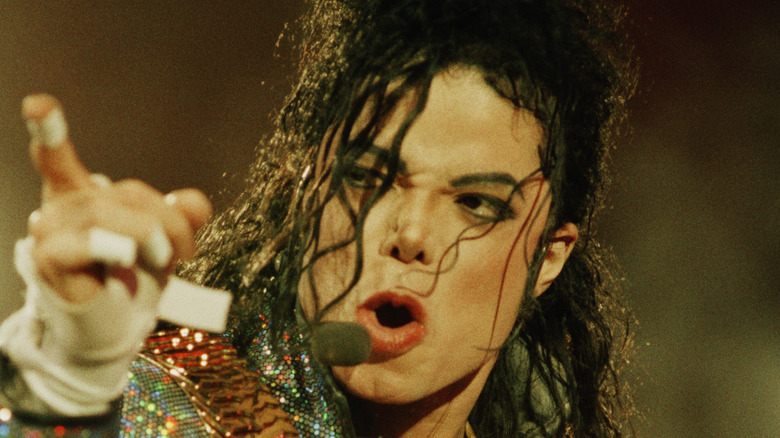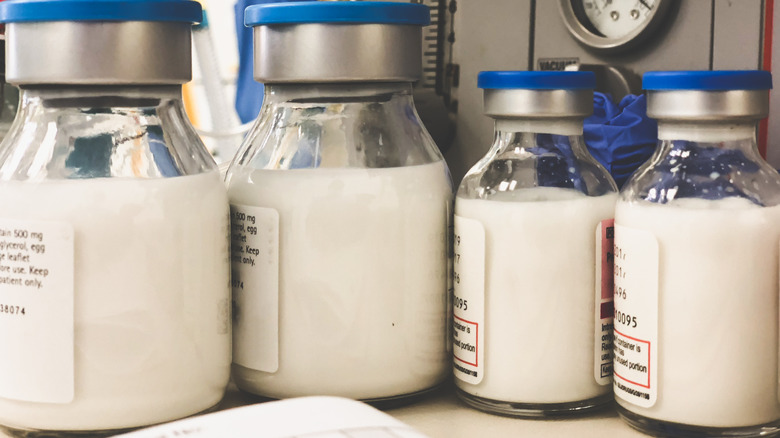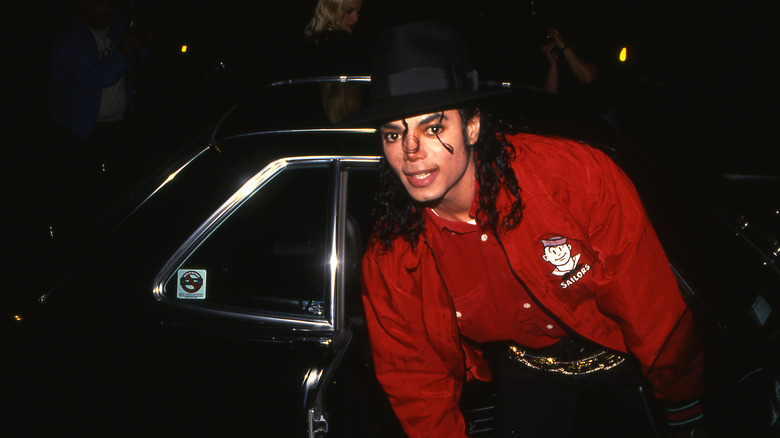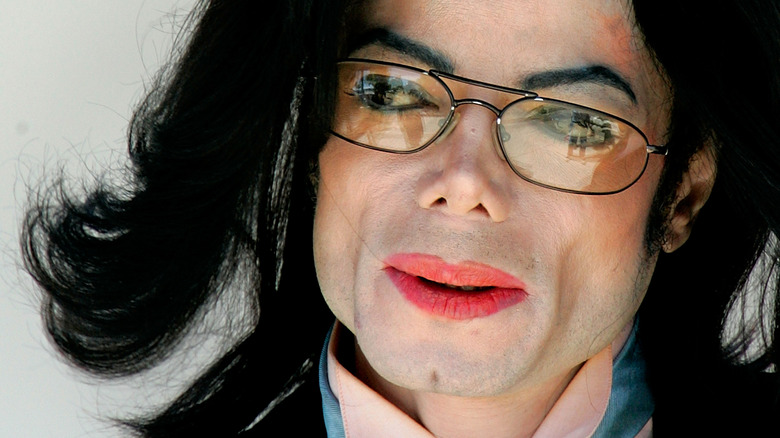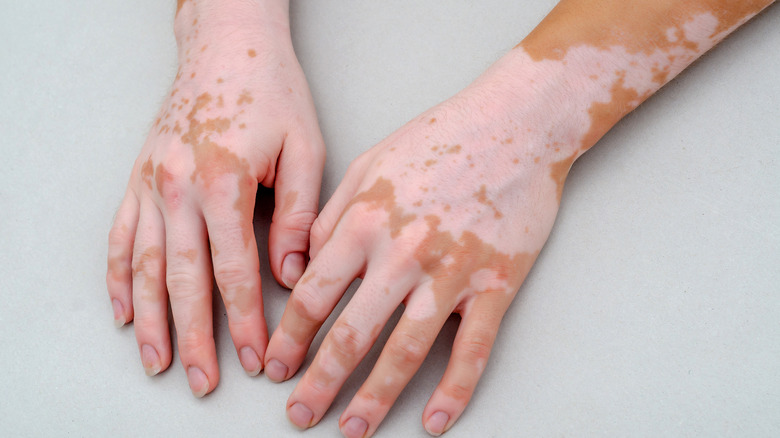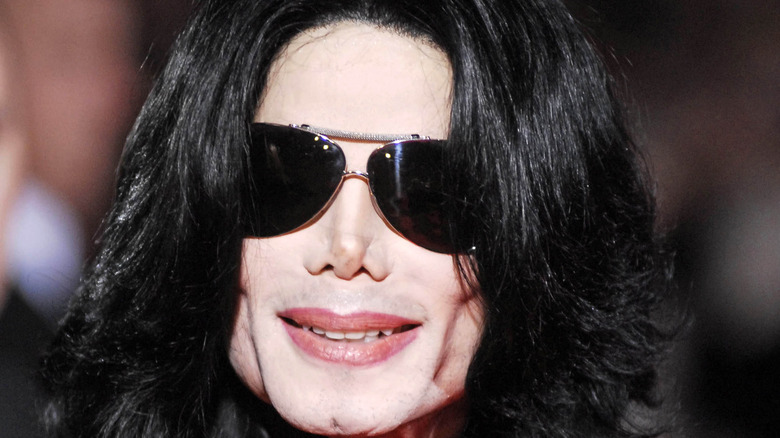What We Learned About Michael Jackson's Health After His Death
Michael Jackson is one of the biggest pop singers of all time. Standing alongside the late Elvis Presley and the Beatles in music history's hall of fame, his legacy is arguably as strong today as it was when he was still alive.
According to Biography, the "King of Pop" was born in Gary, Indiana, and began his career in music at the age of five. His first time onstage was with his brothers who, with the guidance of their father, performed as the musical group The Jackson 5. Michael and his brothers enjoyed early success and a slew of hits, but that didn't stop him from eventually venturing out and releasing his first solo album.
For the next three decades, Jackson pumped out smash hits and made smashing headlines. The singer underwent a barrage of physical changes during his time in the spotlight, and various rumors about him had spread from those within the industry to public media outlets. However, the state of his overall health wasn't completely known until after his tragic death.
Some close to Michael Jackson claimed he had a drug addiction
According to Novo Detox, Micheal Jackson died on July 25th, 2009 at the age of 50. The cause was an overdose, and his death was officially declared a homicide. His doctor, Dr. Conrad Murray, was charged for administering the drugs that killed the pop star. In an autopsy report, a mixture of drugs (including diazepam, lidocaine, and ephedrine) was found in the singer's system.
However, it was the last drug Murray administered, propofol, that was said to be the cause of the lethal overdose. Someone who personally knew the late singer claimed that Jackson "was totally addicted" to the drug, which eventually led to the overdose that caused his death (via CNN). "I knew this problem existed," said Jackson's dermatologist Dr. Arnold Klein, referring to Jackson's propofol addiction. "I did my best to prevent it. Whenever I could, I prevented it, but I'm only one man and I have to support my own life and take care of myself."
Michael Jackson became addicted to painkillers early in his career
So what is propofol? According to Drugs.com, propofol is a general anesthetic that slows the activity in your brain and nervous system. Medical professionals use propofol to keep patients asleep "during general anesthesia for surgery or other medical procedures." Some of propofol's possible side effects include dizziness, pounding in the ears, mild itching, confusion, and weak or shallow breathing. It is administered intravenously and is typically only given by medical professionals in a controlled setting, according to a 2018 paper in Brain Sciences. Though the drug's side effects may be mild, addiction to the drug has been linked to high mortality rates.
Michael Jackson's addiction to this specific drug was unknown to the public when he was alive. However, CNN reports that the singer became addicted to painkillers in 1984, after an accident happened on the set of a Pepsi-Cola commercial. As a result, he had to have major surgery on his scalp, during which he allegedly developed a painkiller addiction.
If you or anyone you know is struggling with addiction issues, help is available. Visit the Substance Abuse and Mental Health Services Administration website or contact SAMHSA's National Helpline at 1-800-662-HELP (4357).
Speculation over the singer's nose still exists
The state of Michael Jackson's health was a hot topic in the media during the last decade of his life. However, the public didn't get any clear answers concerning some of the singer's more visual transformations until after his autopsy was made public. One medical professional stated she believed the singer's nose was crippled after repeated cosmetic procedures. "Michael Jackson has what we call an end-stage nose, a crippled nose, a crucified nose — one that's beyond the point of no return," surmised Dr. Pamela Lipkin, a prominent plastic surgeon in New York City to ABC News.
Aside from his altered nose, the apparent changes in the singer's skin were also the subject of much debate when he was still alive. In fact, there were quite a few theories that only got put to rest after Jackson had passed. Show Biz Cheat Sheet states that when the autopsy report was made public, it was confirmed Jackson had a skin condition called vitiligo.
Vitiligo: believed to be an autoimmune condition
The NHS describes vitiligo as a long-term condition that causes pale white patches to develop over the skin. It happens due to a lack of melanin in the skin and is believed to be an autoimmune condition. Those who live with vitiligo are said to be more susceptible to eye problems, experience extra sensitivity to the sun, and suffer from low self-confidence. It is also said to be linked to other autoimmune conditions.
According to Express, Michael Jackson's death came at what was about to be the start of a historic residency at London's O2 arena. The singer was gearing up to get back on stage — and apparently, that was what was on his mind right up until the very end. "He wanted to prove to the world that he is number one, that he is still Michael Jackson, that he can still deliver a thriller," said Jackson's close friend Uri Geller in an interview (via The Daily Star). "The anticipation, the stress levels, the anxiety for what was coming up in London was so huge... I believe that that stopped his heart," he shared.
Close friends to Jackson believe stress took its toll
Michael Jackson's death revealed that the singer had a number of health conditions, such as a reported addiction to powerful prescription drugs, a possibly crippled nose, and vitiligo. On top of that, his comeback at London's O2 theater was causing a distressing level of anxiety.
According to the Mayo Clinic, the symptoms of anxiety include nervousness, the inability to sleep, feeling weak or tired, and hyperventilation. The legendary performer was arguably not in a good space mentally or physically during the days leading up to his death. "He had a lot of medical issues,” said Stacy Brown, co-author of "Michael Jackson: Behind the Mask," to ABC News. Brown also believed that Jackson brought most of it upon himself: "He put too much on himself, and the pressure I think took its toll. He abused himself so much for so long."
If you or someone you know is struggling with mental health, please contact the Crisis Text Line by texting HOME to 741741, call the National Alliance on Mental Illness helpline at 1-800-950-NAMI (6264), or visit the National Institute of Mental Health website.

